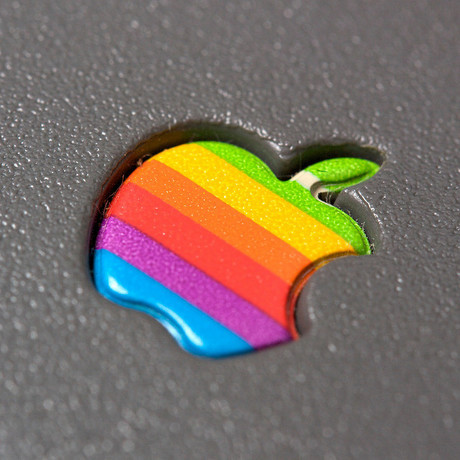Apple's $682m patent loss; Melbourne IT buys UberGlobal; Google's Android for Work

Apple has been ordered to pay US$532.9 million (approximately AU$682 million) after a jury in the US found that iTunes infringed patents owned by patent licensing firm Smartflash, according to Reuters.
It could have been much worse for Apple, however - Smartflash had reportedly wanted US$852 million (a shade over a billion Australian dollars) in damages.
Apple reportedly said it will appeal the decision.
The Guardian quoted Apple’s Kristin Huguet as saying: “Smartflash makes no products, has no employees, creates no jobs, has no US presence and is exploiting our patent system to seek royalties for technology Apple invented.
“We refused to pay off this company for the ideas our employees spent years innovating, and unfortunately we have been left with no choice but to take this fight up through the court system,” she was quoted as saying.
But just days after the reporting of that case, Reuters reported that Smartflash had sued Apple once again, for the same patents - this time for use of the patents in devices introduced after the original case was underway.
“Smartflash filed the complaint to address products that came out too far into the last proceedings to have been included,” Reuters quoted Smartflash’s attorney, Brad Caldwell, as saying. “Apple cannot claim they don’t know about these patents or understand that they are infringing. A diligent jury has already rejected those arguments.”
And that’s not the end of Apple’s patent woes - Ericsson filed multiple patent lawsuits against the company last week, according to PCWorld.
Melbourne IT acquires UberGlobal
Domain name registrar and internet services company Melbourne IT will acquire cloud services provider UberGlobal for $15.5 million, according to ComputerWorld.
UberGlobal purports to be Australia’s third-largest cloud services provider by market share and claims to have more than 110,000 customers. It offers a variety of cloud services (like SaaS, PaaS and IaaS) as well as domain registration, web hosting and other internet services.
Melbourne IT will pay an additional earn-out payment to shareholders of UberGlobal if the latter company’s 2015 EBITDA (earnings before interest, tax, depreciation and amortisation) exceed $2.1 million, according to the Australian Financial Review.
Melbourne IT’s CEO Martin Mercer reportedly said that the acquisition is in line with his company’s growth strategy, and that acquiring UberGlobal will deliver benefits of about $2.5 million to Melbourne IT per year.
The acquisition is expected to be complete by 30 April 2015.
Android for Work
Google has officially announced Android for Work, a project aimed at getting more devices based on its Android OS into the workplace.
“Over a billion people today carry Android smartphones - devices that are more powerful than the computers we used just a few years ago,” a statement from the company read.
“[F]or the majority of workers, smartphones and tablets are underutilised in the workplace. Their business and innovation potential remain largely untapped.”
The Android for Work program intends to “tap into that potential”, the company said.
The project introduces the idea of a ‘work profile’ - something that “isolates and protects work data”.
According to Google, these work profiles mean that “IT can deploy approved work apps right alongside their users’ personal apps knowing their sensitive data remains secured. People can use their personal apps knowing their employer only manages work data and won’t erase or view their personal content.”
For devices running Android Ice Cream Sandwich through Kitkat, or devices that otherwise don’t run work profiles natively, Google has created the Android for Work app.
“The app, which delivers secure mail, calendar, contacts, documents, browsing and access to approved work apps, can be completely managed by IT,” the company said.
The company has also introduced Google Play for Work, which allows businesses “to securely deploy and manage apps across all users running Android for Work, simplifying the process of distributing apps to employees and [ensuring] that IT approves every deployed app”.
According to Wired, some enterprise mobility management companies are now offering Android for Work to businesses, and in the future handset makers will offer phones preloaded with the software.
Four ways AI can finally make threat intelligence useful and not just noisy
Done poorly, threat intelligence is noise. But done well, it becomes one of the most powerful...
Australia’s top tech priorities for 2026
It is anticipated that AI will evolve from a pilot project to a productive standard, underpinned...
Why AI's longevity lies in utility, not novelty
The real potential of AI is in underpinning the invisible systems powering everyday business.



